In today’s fast-paced world, getting a good night’s sleep has become a luxury for many. The demands of work, family, and daily life often leave us tossing and turning in bed, struggling to find that elusive slumber. But fear not; there are proven strategies to help you sleep better at night. In this article, we will explore 17 tips that can make a significant difference in the quality of your sleep.
A good night’s sleep is as essential to your health as working out and eating right. Hormone levels immediately drop when sleep quality is poor, according to studies on the benefits of exercise for performance and brain health, and the same is true for vice versa. In addition to elevating the risk of disease, it can lead to weight gain in both adults and children.
On the other hand, getting enough sleep can improve your health in many ways, including your ability to control your eating and your performance at the gym.
A decrease in both sleep duration and quality has been seen over the past few decades. There are a lot of people who suffer from chronic sleeplessness.
Getting enough sleep is critical if you’re trying to improve your health or drop some pounds.
Get better rest with these 17 tried-and-true techniques
1. Do not consume any fluids within three hours of bedtime.
Overactive urination at night, often known as nocturia, is a medical condition. The quality of your sleep and how energized you feel during the day are both affected. Some people are more susceptible than others, but drinking a lot of alcohol right before bed might cause comparable sensations. Even though staying hydrated is important for your health, it’s best to limit your fluid intake after dinner.
In the hours leading up to bedtime, it’s best to abstain from liquids. If you want to reduce the likelihood that you’ll wake up in the night, you should also use the restroom shortly before bed.
2. Maintain a regular exercise routine, but avoid doing so right before bed.
Regular exercise has been shown to have beneficial effects on sleep quality and overall health.
It has been used to improve sleep quality across the board and alleviate insomnia.
One study, including older people, found that regular exercise cut the time it took to fall asleep by nearly half and resulted in an additional 41 minutes of sleep per night.
Exercise was more helpful than most medications for people with severe insomnia. Exercise decreased the amount of time it took to fall asleep by 55%, the amount of time spent awake at night by 30%, and anxiety by 15%. Even though regular exercise is essential for restful sleep, doing it too close to bedtime can disrupt your sleep.
Exercise has a stimulating effect that raises alertness and releases chemicals like epinephrine and adrenaline, which contribute to this effect. It appears to vary depending on the person, as some studies reveal no detrimental effects at all.
3. Get yourself a nice, soft mattress and a fluffy pillow.
One mystery for some is why they always get better hotel sleep than at home. The quality of the bed can have an impact on sleep, in addition to the ambiance.
According to one study, when the benefits of a new mattress were studied over the course of 28 days, it was found that there was a 57% decrease in back pain, a 60% decrease in shoulder pain, and a 59% decrease in back stiffness. Plus, it led to a 60% increase in how well people slept.
The use of fresh bedding, according to other research, can improve the quality of one’s sleep. Additionally, using subpar bedding might make lower back pain worse, according to a reliable source. Mattress and bedding preferences are quite individualistic. It’s best to go with what feels right when upgrading your bedding. The bedding should be replaced every eight to ten years at the absolute minimum. This is an easy, albeit somewhat costly, solution if you haven’t replaced your mattress or bedding in a long time.
4. Avoid the possibility of a sleep disorder.
Having trouble sleeping could be a symptom of a more serious health issue. Sleep apnea is a prevalent disorder characterized by brief interruptions in breathing during sleep. This condition causes a person to repeatedly stop breathing during sleep.
This issue might be more widespread than you realize. In just one review among men, 24% are said to suffer from sleep apnea, while only 9% of women do. Additionally, shift workers frequently experience medically diagnosed difficulties such as sleep movement disorders and circadian rhythm sleep and wake disorders. If you have never been able to get a good night’s rest, it may be time to see a doctor.
5. To unwind, hop in the tub or shower.
To unwind before bed, many people take a warm bath or shower. Research shows that they can make it easier to fall and stay asleep, particularly for the elderly. One study found that having a hot bath 90 minutes before bedtime enhanced sleep quality and increased the amount of deep sleep people experienced.
If you’d rather not soak in the tub all night, you can always just wash your feet. Hot water infused with herbs might help you unwind and have a better night’s sleep.
6. Clear your thoughts and unwind before bed.
People often find it helpful to follow a ritual right before bed to wind down and prepare for sleep. The use of relaxation techniques just before bedtime is another typical method of treating insomnia.
One study found that sick people slept better after receiving a massage. Listening to soothing music, reading a book, soaking in a warm bath, meditating, deep breathing, and visualizing a peaceful scene are all effective methods. Find out what works best for you by trying various approaches.
7. Never eat too close to bedtime.
Late-night snacking may interfere with sleep quality and the body’s production of HGH and melatonin. However, the significance of this may also depend on the nature and quality of your midnight munchies.
According to one reliable study, eating a large carbohydrate meal four hours before bedtime improves sleep quality.
Interestingly, one study found that adhering to a low-carb diet enhanced sleep quality as well, suggesting that carbohydrates aren’t always necessary, especially for those who are already accustomed to eating a low-carb diet.
8. Adjust the temperature in your bedroom.
The temperature of both the body and the bedroom can have a significant effect on how well one sleeps. As you may know from trying to sleep in the summer or other hot climates, it can be challenging to do so.
High body and room temperatures have been shown to reduce sleep quality and increase awakeness, according to credible sources. Although individual preferences and routines vary, most people find a temperature of about 70 degrees Fahrenheit (20 degrees Celsius) to be agreeable.
9. Ensure that your bedroom is at its best.
In many people’s minds, the bedroom itself has a significant role in how well they sleep.
Things like ambient temperature, background noise, the brightness of exterior lighting, and the placement of furniture all play a role.
One study found that when noise and light were reduced, the quality of sleep for about half of the women in the study improved. It’s best to get as much shuteye as possible in a bedroom free of distractions like TV, radio, and even alarm clocks that emit bright, artificial light. Get your bedroom in order so that you can unwind and enjoy some peace and quiet there.
10. It’s not a good idea to drink alcohol.
Two or more drinks before bed can disrupt your hormones and your sleep. Sleep disorders such as sleep apnea, snoring, and restless night sleep are all made worse by alcohol usage.
It also affects the generation of the hormone melatonin at night, which is essential to maintaining a healthy circadian rhythm. There’s been more research, and natural nocturnal increases in human growth hormone (HGH), which contribute to circadian rhythm and have many other important functions, were discovered to be reduced by alcohol consumption.
11. You may also like these supplements.
There are a number of substances that can aid in relaxation and sleep, such as:
Gingko biloba: It’s a natural herb with potential health advantages, and there’s some evidence that it helps with sleeping, relaxing, and reducing stress. Just before bed, take 250 mg.
Glycine: Taking 3 grams of the amino acid glycine has been shown in a few trials to help people get a better night’s rest.
Root valerian: Several credible studies have shown that valerian helps reduce insomnia and enhance the quality of sleep. Take 500mg at night.
Magnesium: Magnesium has been shown to promote calmness and good sleep.
L-theanine: L-theanine, an amino acid, has been shown to facilitate restful sleep. Try 100–200 milligrams right before bed.
Lavender: Lavender, a potent herb with many health benefits, is often used to promote relaxation and sleep. Take 25–46% linalool, or 80–160 mg.
Take each vitamin separately first. They aren’t a panacea for insomnia, but they can help when used in conjunction with other natural methods.
12. Supplement with melatonin.
The sleep hormone melatonin is crucial. A reliable source that alerts the brain that it’s time to wind down and get some shut-eye. The sleep medication melatonin has become increasingly popular in recent years.
Commonly prescribed for sleeplessness Based on reliable information, melatonin may be the quickest way to sleep.
Taking 2 milligrams (mg) of melatonin before bedtime has been shown to improve sleep quality, increase energy levels the following day, and shorten the time it takes to get to sleep.
Half of the group in another study with a trusted source reported a 15% improvement in sleep quality and fell asleep faster.
Both of these investigations also failed to find any evidence of withdrawal symptoms.
When changing time zones, melatonin can help you get some sleep. Reliable, as it aids in resetting your circadian clock.
Melatonin is available without a prescription in various countries. Melatonin is commonly available in various places, both physically and digitally. Take 1–5 mg 30–60 minutes before going to sleep.
To determine your tolerance, begin with a low dose and gradually increase it. If you’re interested in using melatonin, you should discuss it with your doctor first because it has the potential to affect brain chemistry.
Long-term usage of this supplement in children has not been properly tested, so you should talk to them before giving it to them to help them sleep.
13. Maintain a regular sleep-wake schedule
The natural cycle of your circadian rhythm follows the daily changes in light and dark.
Maintaining a regular bedtime and waketime is associated with better sleep over time. One research participant, who had erratic sleep schedules and stayed up late on weekends, reported sleeping poorly.
If you have trouble sleeping, try setting a regular wake-up and bedtime. You might not even need an alarm clock after a few weeks.
14. Take fewer or shorter naps during the day.
Power naps are helpful, but it’s not good to sleep during the day for too long or too often. You may have trouble falling asleep at night if you regularly nap during the day.
In fact, one study found that people who napped during daylight ended up feeling sleepier than they had before.
Naps of 30 minutes or less can improve cognitive performance during the day, while naps of an hour or more can be detrimental to health and sleep. However, it suggests that those who are accustomed to napping during the day do not have poor sleep quality or interrupted sleep at night.
You have nothing to worry about if you nap during the day on a consistent basis and get enough quality sleep at night. Naps have variable effects on different people.
15. Caffeine intake should be limited in the evening.
Due to its many benefits, 90% of people in the United States consume caffeine. Improved concentration, stamina, and performance can be experienced after just one dose.
However, caffeine stimulates the nervous system and may prevent the body from naturally resting at night if eaten late in the day. Caffeine use up to six hours before bed significantly reduced sleep quality, according to one study.
An increased blood level of caffeine can last for up to eight hours. If you’re sensitive to caffeine or have difficulties sleeping, consuming coffee in large quantities after 3:00 or 4:00 p.m. is not advised.
Late afternoon and nighttime are not the times for caffeinated coffee, so if you must have a cup, opt for decaf.
16. Lessen your late-night blue-light exposure.
Daytime sun exposure is good for you, but evening light exposure is harmful. This is because it keeps your body and mind convinced that it is daytime for longer than it is. Hormones like melatonin, which promote calm and restful sleep, are suppressed as a result.
The worst offender is blue light, which modern electronic devices like cell phones and computers emit in large quantities.
17. Daytime exposure to intense light should be increased.
Your circadian rhythm is your body’s internal clock. It has an impact on your central nervous system, your hormonal system, and your ability to stay awake or fall asleep.
Sunlight and other daytime sources of strong light are beneficial to maintaining a normal circadian rhythm. This enhances the quality and duration of sleep, which in turn increases alertness during the day.
Exposure to strong light throughout the daytime helps people with insomnia get better sleep and stay asleep for longer. It resulted in an 83% decrease in the time it takes to get to sleep. Two hours of daytime exposure to bright light increased total sleep time by two hours and improved sleep quality by eighty percent in one study of older people.
While most studies have focused on patients with severe sleep problems, getting daily light exposure is likely to help even if you have ordinary sleep. If possible, expose yourself to sunshine every day; if not, consider purchasing a bright light device or bulbs.
Sleep is vital to your well-being. One meta-analysis (which can be trusted) found that getting too little sleep raises the chance of being overweight by 89% in kids and 55% in adults.
Getting less than 7 to 8 hours of sleep every night is associated with an increased risk of cardiovascular disease and type 2 diabetes, according to credible sources.
If you want to be at your physical and mental best, you should make getting enough sleep a priority and try out some of the suggestions given above.


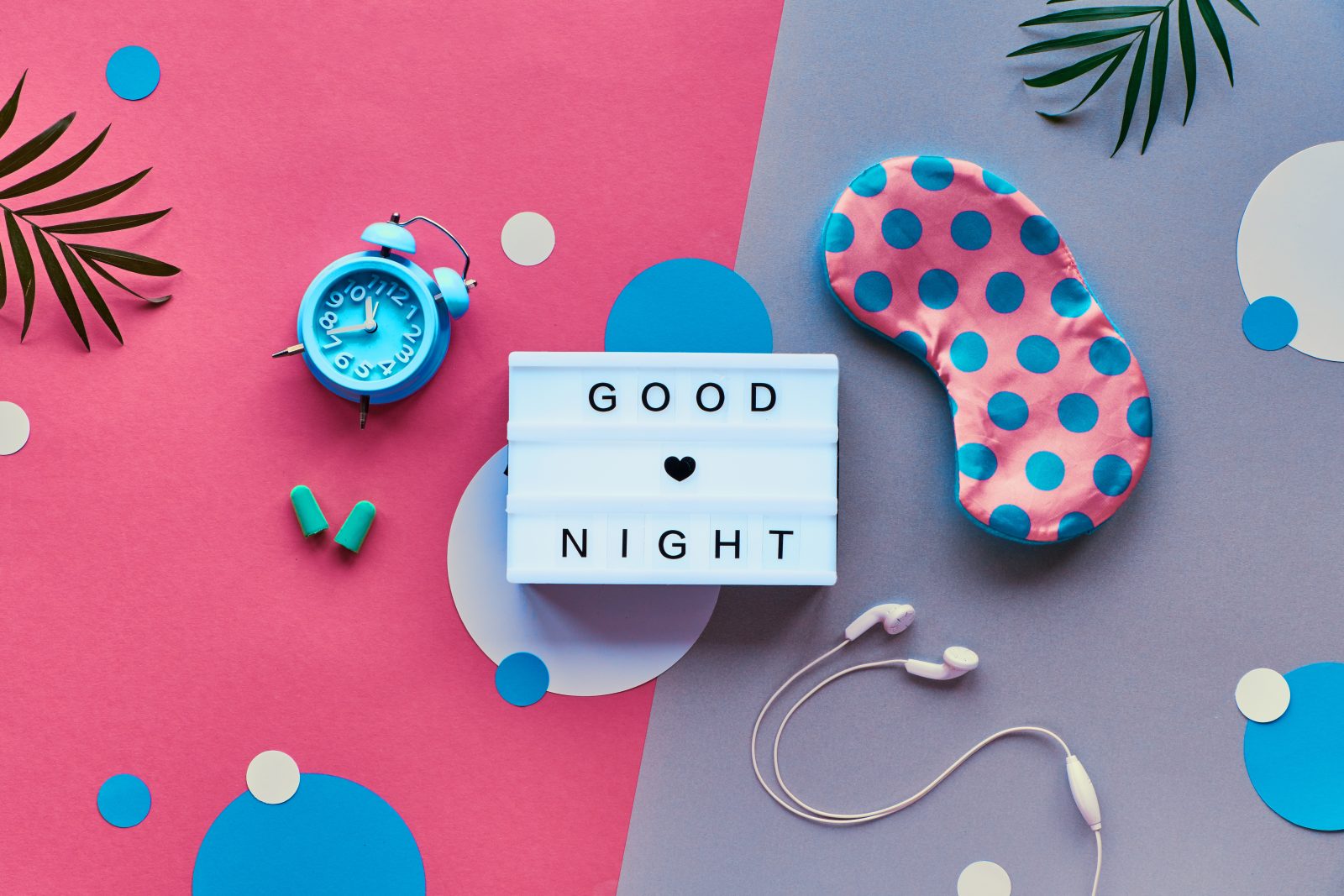
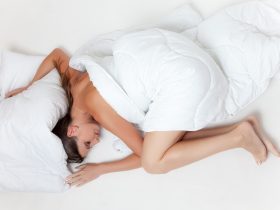








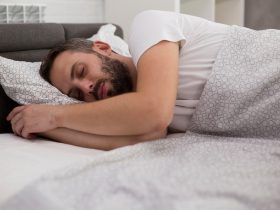
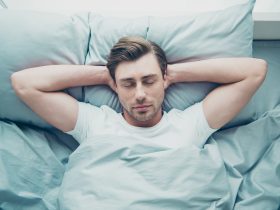
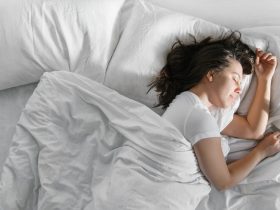

Find Us on Socials